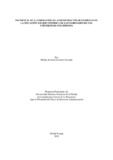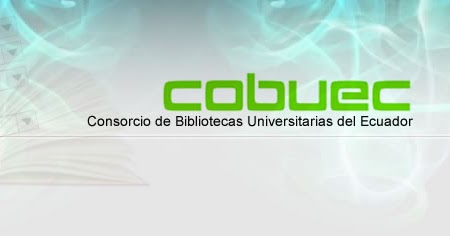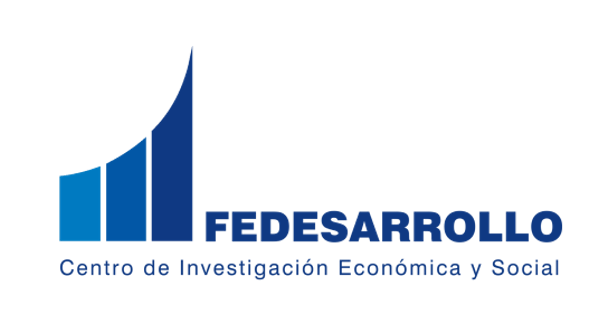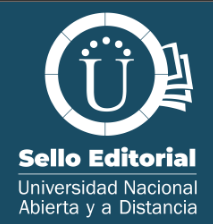Mostrar el registro sencillo del ítem
INCIDENCIA DE LA FORMACIÓN EN ADMINISTRACIÓN DE EMPRESAS EN LA SITUACIÓN SOCIOECONÓMICA DE LOS EGRESADOS DE UNA UNIVERSIDAD COLOMBIANA
| dc.coverage.spatial | cead_-_josé_celestino_mutis | spa |
| dc.creator | Guerrero Guzmán, Martha de Jesús | |
| dc.date.accessioned | 2019-11-22T20:58:33Z | |
| dc.date.available | 2019-11-22T20:58:33Z | |
| dc.date.created | 2018 | |
| dc.identifier.uri | https://repository.unad.edu.co/handle/10596/30237 | |
| dc.description.abstract | La investigación tuvo el objetivo de analizar la incidencia de la formación en administración de empresas en la situación socioeconómica de los egresados de una universidad colombiana, enfocándose en identificar los cambios en el nivel de vida de los graduados un año antes y cuatro años después de obtener su título profesional. De la misma manera, determinar cuál ha sido su contribución a la comunidad. La investigación se ubicó en el enfoque cuantitativo, bajo un diseño de investigación no experimental y longitudinal de panel. El alcance de la investigación es descriptivo y correlacional. La recolección de información se hizo a una muestra aleatoria, representada por los graduados del programa del año 2012 en la ciudad de Bogotá. El instrumento utilizado fue el cuestionario, en el cual se establecieron preguntas con varias categorías de respuesta, enmarcadas en las variables: ocupación, nivel de vida y aporte a la comunidad de los graduados. Para la ocupación se averiguó sobre el estatus de empleado, emprendedor o no tiene ninguna ocupación. El nivel de vida se midió la forma y el lugar en el que vive, el medio de transporte, viajes, recreación, sistemas de salud. El aporte a la comunidad midió: si generó empleo, solucionó un problema, prestó algún tipo de servicio o mejoró uno existente. La investigación se enfocó en determinar si hubo evolución de estas variables durante los años 2011 a 2015. Los resultados arrojaron que la ocupación y nivel de vida de los graduados mejoró durante los cuatro años siguientes a su título, no obstante, reflejó una debilidad en la parte de emprendimiento, por lo cual se evidencia que el programa requiere fortalecer los elementos que incentiven el emprendimiento en sus egresados. En este punto, como aporte doctoral se recomienda incorporar al currículo un componente de formación para el emprendimiento el cual contemple aspectos tales como: el proyecto de vida de estudiante, el fortalecimiento de las competencias para el emprendimiento, la articulación de la rentabilidad del negocio con el progreso social, la innovación y los organismos que apoyan el emprendimiento en Colombia. | spa |
| dc.format | spa | |
| dc.title | INCIDENCIA DE LA FORMACIÓN EN ADMINISTRACIÓN DE EMPRESAS EN LA SITUACIÓN SOCIOECONÓMICA DE LOS EGRESADOS DE UNA UNIVERSIDAD COLOMBIANA | spa |
| dc.type | Proyecto de investigación | spa |
| dc.subject.keywords | Impacto socioeconómico | spa |
| dc.subject.keywords | Formación profesional en administración | spa |
| dc.subject.keywords | Emprendimiento | spa |
| dc.description.abstractenglish | The research objective was to analyze the incidence of Business Administration training in the graduates’ socioeconomic situation from a Colombian University, focusing on identifying changes in their standard of living one year before and four years after obtaining their professional degree. In the same way as to determine what their contribution to the community has been. The research is quantitative, under a non-experimental, panel design. The scope of the investigation is descriptive and correlational. The information gathering was made to a random sample, represented by graduates from the 2012 program in Bogotá. The instrument used to gather the information was a questionnaire, in which questions were established with several response categories, framed in the variables: occupation, standard of living and graduates’ contribution to the community. In the occupational variable, it was inquired whether the participant is employed, entrepreneur or has no occupation. The standard of living was measured by the way and the place where graduates live, means of transportation, travel, recreation and health systems. Finally, the contribution to the community was measured by identifying whether graduates generated employment, solved a specific problem, provided some type of service or improved an existing one. The research focused on determining if there was an evolution of these variables during the years 2011 to 2015. In conclusion, the results showed that the occupation and the graduates’ standard of living improved during the next four years after their degree, however, it reflected a weakness in the entrepreneurship skills which shows that the program requires strengthening the elements that encourage entrepreneurship in the graduates. At this point, as a doctoral contribution, it is recommended to incorporate into the syllabus, a training component for entrepreneurship where some aspects such as the student's life project, the entrepreneurial skills strengthening, the articulation of business profitability with the social progress, innovation, and information about the agencies that support entrepreneurship in Colombia, could be included. | spa |
| dc.subject.category | Administración de negocios | spa |















